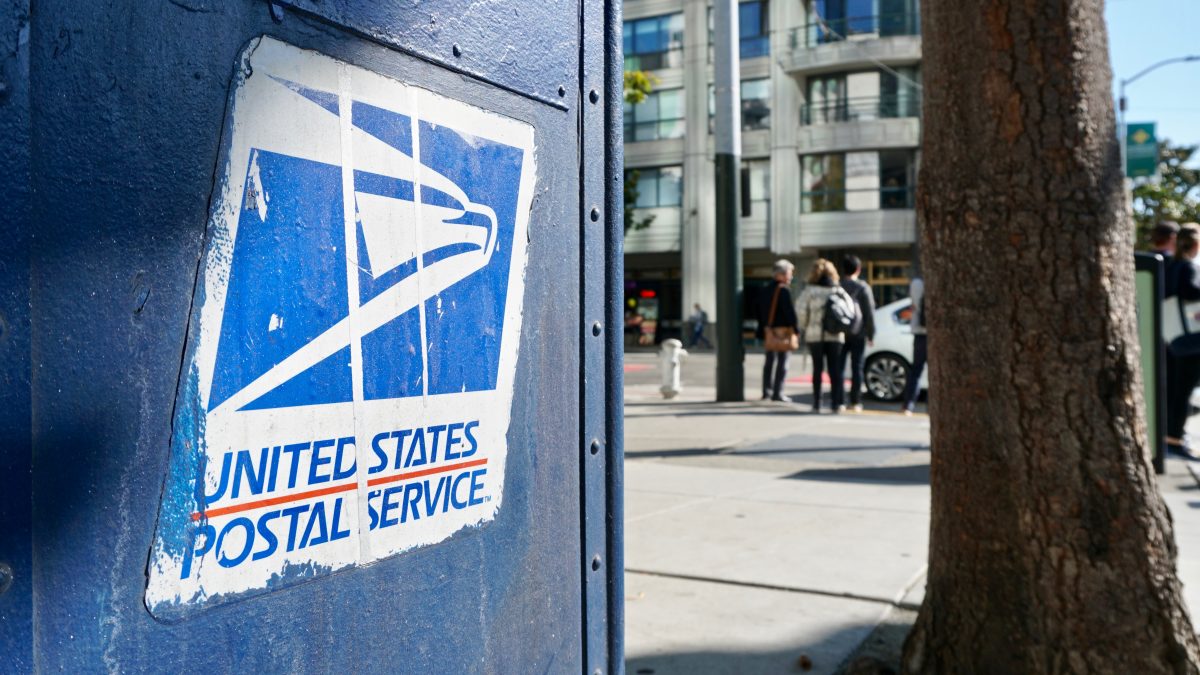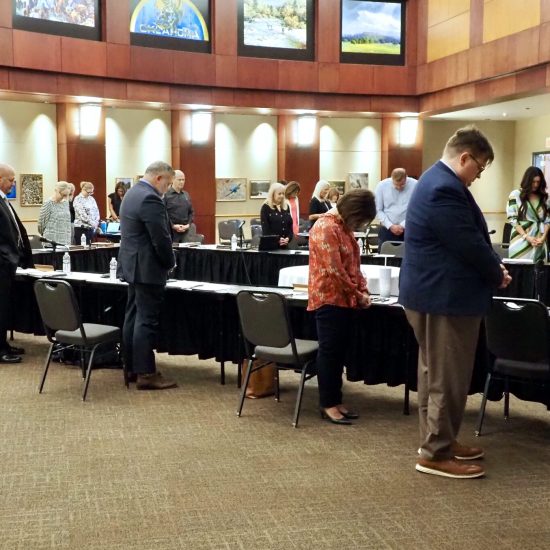
Soon after becoming editor of Word&Way four years ago, I could predict when subscribers would receive the latest issue of the magazine. Nearly all would have it just two days after printing (though a couple rural areas consistently ran a couple days later).
Then last fall, problems started.
Most months found a couple of days added to the delivery time by the understaffed and underfunded USPS — often doubling the delivery time for most subscribers. And that was before coronavirus added new problems.
Rather than just a day or two, the August 2020 issue took a full week to arrive — making it difficult to give people timely information. I wondered what was going on. Then I read the news and realized this is intentional.
And what’s meant as a political effort to undermine the U.S. Postal Service in an election year could also hurt religious publications and churches trying to communicate with members, especially older members already feeling disconnected in this age of virtual worship.
Without the USPS, the world of religious communication would be dramatically reduced. As Margaret Colson, executive secretary of the Association of State Baptist Publications, told Word&Way, the USPS helped Baptist publications flourish. But, she added, already this year three state Baptist publications — Arkansas Baptist News, Minnesota-Wisconsin Baptist, and The Baptist Record (in Mississippi) — ceased printing in part due to “escalating costs of mailing as well as timeliness of news being delivered.”
“The timely and cost-effective delivery of news through printed publications has long been a hallmark of state Baptist publications,” she said. “Baptist editors have for many years been USPS advocates and have relied on the postal service as their trusted partners in news delivery.”
But what if that partner falls apart?

A Democratizing Institution
The United States started with a radical belief in freedoms like religious liberty, free speech, and press freedom. But the U.S. didn’t just give people the right to communicate; the U.S. actually helped subsidize free speech by making the distribution of news publications more economical.
“The Founders intended the Postal Service to be a pillar of the republic, binding together millions of Americans, urban and rural, for the common good” explained Richard John, a history professor at Columbia University who wrote a book on the history of the postal system. “For the Founders, a well-informed citizenry, not profit-making for even letter delivery, was the reason the Postal Service was so crucial to the future of the republic.”
“[The Postal Service Act of 1792] was at least as important as the First Amendment in laying the groundwork for free institutions,”John added. “Most critically, the act subsidized the circulation of newspapers throughout the country on a nonpreferential basis and at extremely low cost. Not only pro-government ideas but also anti-government ideas could circulate throughout the length and breadth of the republic.”
With this service, news publications quickly grew and circulated in ways unseen elsewhere in the world. That includes religious publications.
“For the Founders, a well-informed citizenry … was the reason the Postal Service was so crucial to the future of the republic.”
Thus, Patty Heyda, a professor at Washington University in St. Louis, calls the USPS “a democratizing institution.” Rather than a privatized system where only the wealthy can afford to distribute their words, the USPS levels the playing field and serves the broader community.
“The post office is what urban designers call a ‘local public anchor institution,’” she explained. “These are the shared civic buildings, services, and spaces accessible by all and benefiting all, and they also include public schools, libraries, and parks. They support the population without discrimination, through economic downturns and even during pandemics.”
Which is why she’s concerned to see these public spaces lost to privatization, such as the former D.C. Post Office that’s now a Trump Hotel. And like those historic postal buildings, there’s a push to privatize the whole system.
The USPS wasn’t created to function like a business but a service — that word is literally in its name. This postal service helped unify our nation because it’s hard to have a community without communication. And it allowed for various ideas to freely spread in search of audiences, including voices of religious minorities — like Baptists were back in those days.
Rural Americans particularly benefited from the USPS as it connected them in ways not otherwise financially feasible. In fact, the USPS delivers to rural areas that private delivery companies like FedEx and UPS don’t — even taking the packages from those companies for what USPS workers call “the last mile.” For the about 20% of older Americans living in rural areas, the USPS’s dedication to go that extra mile keeps those Americans connected.
“USPS isn’t just a public service,” said Twyla Baker of the Mandan-Hidatsa tribe in North Dakota. “It’s a lifeline.”
This includes for smaller and more rural churches who benefit even more from the USPS than their richer, urban counterparts. Many churches depend on the USPS to communicate with members who lack broadband access, skill, or interest. Mailing letters, postcards, newsletters, or magazines simply isn’t as economically feasible with other carriers — especially with the USPS nonprofit rates.
It’s hard to have a community without communication.
Despite the essential service the USPS provides, efforts to hamstring it started in the early 1970s, and the agency has received no taxpayer funds since 1982 even as politicians in Washington, D.C., passed rules in 2006 that forced the agency into debt by making it pre-fund 75 years of retiree pensions. The USPS has managed to stay afloat despite receiving no tax revenue for nearly four decades. The national lack of investment in a communication network devoted to the common good mirrors similar efforts to undermine or privatize other public service institutions like public schools.
Many politicians today use business terms to criticize the postal service for supposed “losses.” But those same politicians don’t speak about much more massive government spending on the military as a business loss. And they certainly don’t talk about their own salaries as a business loss.
When we lose our sense of the common good and instead look to the market for all solutions, we find democratizing institutions like the USPS unnecessary.
But those D.C. decisions targeting the USPS over the past several decades impact religious communication efforts. That’s why organizations that bring together Christian publications — like the Associated Church Press and Evangelical Press Association (both of which Word&Way is a member) — have long included postal advocacy as part of their work.
“Any increase in postal rates impacts Christian publications adversely,” Lamar Keener, executive director of the Evangelical Press Association, told Word&Way. “EPA is a member of the Coalition of Religious Press Associations, formed in the 1970s to share the work of postal advocacy on behalf of religious periodicals. An EPA-appointed advocate serves on a USPS committee which challenges increases in non-profit periodical rates and provides representative feedback on postal issues.”
For many years, former Word&Way Editor Bob Terry served as that postal advocate. Today, it is John Hannigan, former business manager for the Florida Baptist Witness.
While religious publications have long tracked postal issues, in recent weeks postal advocacy has gone mainstream.

Attacks on the USPS
As the coronavirus pandemic increased calls for mail-in ballots and some states started increasing that as an option, President Donald Trump attacked the USPS since he fears mail-in ballots will help more people vote against him in November — even though he will once again personally vote by mail. And Trump had already been pressing the USPS to dramatically increase rates, apparently to hurt Amazon as Trump holds a grudge against the company’s owner.
The administration fought against coronavirus relief money going to the USPS, even though the agency authorized by the U.S. Constitution found itself hit by the economic impacts of the virus and our country’s poor response to it. These political maneuvers occurred while more than a thousand postal workers contracted COVID-19 and dozens died as they kept working to deliver our mail.
Then in June, Louis DeJoy, a multi-million-dollar donor to Trump, assumed the role of Postmaster General despite the non-partisan nature of the agency. DeJoy also sparked controversy as the first Postmaster General in two decades without USPS experience and since he and his wife were heavily-invested in USPS competitors.
In mid-July, DeJoy implemented new rules that quickly added delays in mail delivery — with even priority and express mail deliveries being delayed by days and sometimes weeks. The USPS also started destroying some mail-sorting machines and removing some postal drop-off boxes. And on Aug. 7, DeJoy reorganized the USPS as 23 executives were displaced or reassigned.
“Letter carriers are manually sorting more mail, adding to the delivery time,” the Washington Post explained about the new rules. “Bins of mail ready for delivery are sitting in post offices because of scheduling and route changes. And without the ability to work overtime, workers say the logjam is worsening without an end in sight.”
After the U.S. Senate requested DeJoy testify in a hearing and the U.S. House announced an early end to its recess to consider legislation related to the USPS, DeJoy announced Tuesday (Aug. 18) he would suspend delivery changes until after the election — though he did not announce plans to undo any changes already creating delays. And DeJoy is reportedly considering other massive changes, including raising many postage rates and eliminating nonprofit discounts.
“USPS isn’t just a public service. … It’s a lifeline.”
The political implications of these various actions garnered media attention, with reporters and politicians largely focused on potential impacts on mail-in ballots.
But the woes of the USPS also impact religious publishers and houses of worship.
No private companies could step up to fill the gap as the USPS delivers 48% of the world’s mail. Nor could anyone else match the USPS’s postal rates for religious news publications or nonprofits like churches.
And many other non-political harms would come from the dismantling of the USPS. Some veterans are complaining that their medications are showing up weeks later than they should. Small businesses already struggling with the economic impact of coronavirus are experiencing postal delays that could cost them customers and put them out of business. About one-in-five Americans still pay their bills by mail — especially older and rural Americans. (Not to mention that a lack of Christmas cards, special stamps, and some packages could really take the “War on Christmas” to a whole new level!)
And our national, state, and local governments rely on the USPS for communicating with their own citizens, such as for jury duty notices, license renewal warnings, census collecting, and more — essential messages that would cost the government much more if they had to use private carriers.
Put simply: if the USPS goes out of business, it would impact much more than voting; our communities would be disrupted, our costs would increase, and our religious ministries would suffer.

Nothing New Under the Sun
The current postal crisis is not the first time that religious publications found themselves hurt by governmental decisions that could hinder efforts to publish religious information. Throughout the 1970s and ‘80s, leaders of Baptist and other religious nonprofit publications advocated against changes to postage rates that threatened to put nonprofit publications out of business.
Then-Word&Way Editor Bob Terry hit the topic nearly annually in a column as he worried about dramatic price hikes, noted necessary adjustments to Word&Way subscription rates, and urged governmental leaders not to kill nonprofit publications like Word&Way.
In the Aug. 19, 1976 issue, Terry said the rising postal rate — “a 400 percent increase in just five years” — “threatens to destroy every nonprofit, religious publication.” Due to the sudden increase in costs, he explained that Word&Way needed to either raise more money or stop printing for several weeks a year. He quickly added that “not to print would be disastrous” since Baptists “depend on the state Baptist paper to carry the news, information, and opinions” and since “to financially destroy Word&Way would greatly damage every effort of our cooperative life.”
In the Aug. 31, 1978 issue, Terry complained that postal rates continued to rise even though nonprofit publications were barred from selling advertising that covered more than 10% of the publication’s space (a rule still in place). Throughout the 1980s, nonprofit postal rates continued to increase dramatically — and some publications went out of print as a result. Word&Way’s subscription rates climbed in response, increasing by a larger percentage during the 13-year period from 1976-89 than during the previous 80 years.
“To financially destroy Word&Way would greatly damage every effort of our cooperative life.”
Terry did not just complain about the rates in his column. He also advocated for better governmental policies, working with other Baptist publication editors to speak with congressional members on several occasions.
In March of 1986, Terry testified in Washington, D.C., during a hearing for the Postal Rate Commission, as did Presnall Wood of the Baptist Standard in Texas and Jim Newton of the Southern Baptist Convention’s Baptist Press. As the immediate past president at the time of the Southern Baptist Press Association, he spoke on behalf of Southern Baptist publications across the country, which he called “critical to the welfare of the denomination.”
“Without this news and information available to interested members, they cannot exercise soul liberty,” Terry said as he noted the importance of Baptist publications to individual Baptists. “Take away the common base of information and one sows the seeds of destruction for all the ministries supported by the 14 million people who make up our national denomination.”
Beyond religious consequences, he also argued it would also hurt society in general. As Terry asked in his Aug. 25, 1977 editorial after noting the potential to drive various magazines and newspapers out of business: “What will happen to the free flow of information and the exchange of ideas in a society built on free thinking and free expression?”
Editors of other Baptist publications during the 1970s and ‘80s joined Terry, Newton, and Wood in speaking out against the postal hikes on nonprofit rates, including Jack Brymer of the Florida Baptist Witness, Lynn Clayton of the Baptist Message in Louisiana, Marv Knox of the Western Recorder in Kentucky, R. G. Puckett of the Biblical Recorder in North Carolina, and Al Schackleford of the Indiana Baptist. Several of those publications are no longer in print.
“What will happen to the free flow of information and the exchange of ideas in a society built on free thinking and free expression?”
Nearly four decades later, the USPS finds itself again in political crosshairs — and religious publications could be collateral damage along with one more public service that promotes the common good.
Jennifer Davis Rash, president and editor-in-chief of the The Alabama Baptist, told Word&Way that “most weeks so far, The Alabama Baptist has enjoyed timely delivery to homes within the state.” And she noted that timely delivery is essential to their ministry.
“Our news and information is time-sensitive and needs to arrive in the homes before the weekend,” she said as she explained they put the weekly paper in the mail on Tuesday so it can reach subscribers by no later than Friday.
“Subscribers receiving the publication on or after the weekend will miss the opportunity to access the resources provided and be properly informed about the news of the day before heading to Sunday church services, where many conversations take place about current events,” she added. “The majority of our newspapers also contain local church announcements and information important to the various congregations — information they need before the weekend each week.”
Thus, Rash fears the larger cultural and religious impact if the USPS no longer functions as it has for nearly 250 years.
“With all the concern over appropriate news reporting from the mainstream media,” she said, “we can’t afford for news sources such as The Alabama Baptist and other faith-based news publications that operate with journalistic integrity and transparency of purpose to be late arrivals in the mailboxes.”







